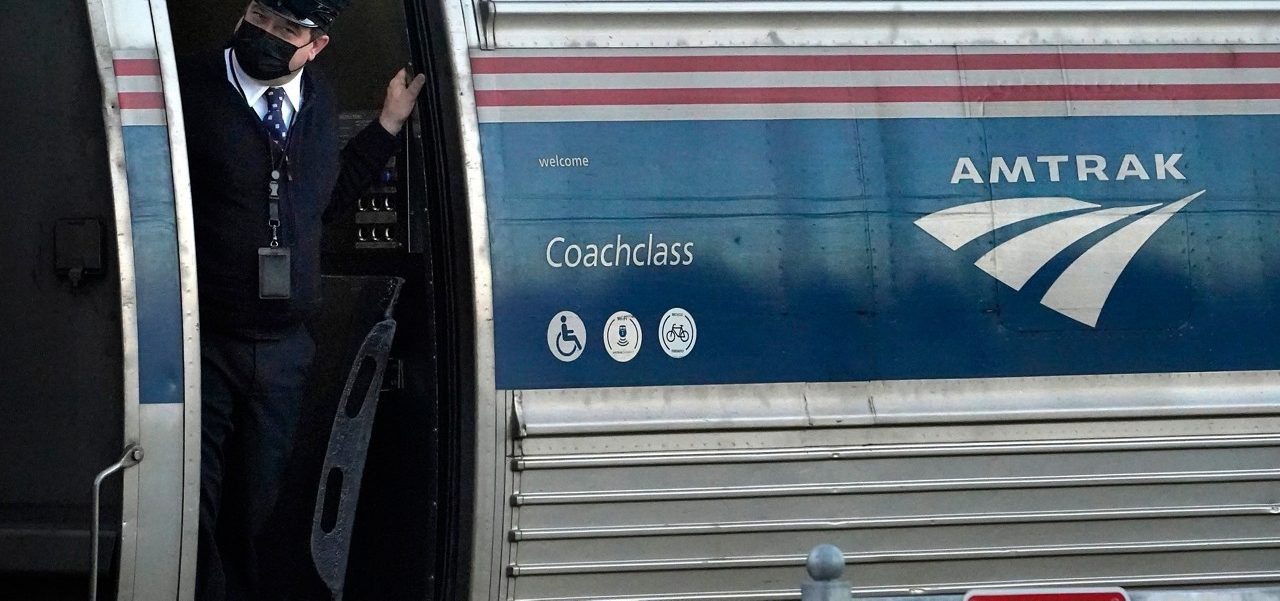A passenger rail link from Asheville to Salisbury hasn't run since 1975. It's been since 1968 that people could take a train from Raleigh to Wilmington. But these old routes, and some new ones, are getting a fresh look with $3.5 million in grants from the U.S. Department of Transportation.
Sen. Thom Tillis this week announced a series of big federal grants for passenger rail service in North Carolina. The biggest is $1 billion to continue work on a high speed rail line from Raleigh to Richmond.
The DOT is also giving the state seven other grants, $500,000 each, to begin studying more passenger rail lines in North Carolina. The popular Amtrak service from Raleigh to Charlotte is widely considered a transit success story.
In October, the Amtrak route from the Queen City to the state capital, with the Carolinian and Piedmont passenger rail service, hit a record one-month high in October with almost 66,000 riders, according to state officials.
“We’re pleased that more people are riding the NC By Train service,” Jason Orthner, Rail Division director at the N.C. Department of Transportation, said when announcing the latest ridership numbers.
“This trend shows just how important train travel is in North Carolina and supports DOT’s vision of a multimodal transportation network that works for everyone,” he said.
The new federal grants aim to expand rail service to more cities in North Carolina, from the mountains to the coast. The includes possible service to Winston-Salem, Fayetteville and Kings Mountain.
It could be a decade or longer before any of the new proposed train lines are open for business.
“This $3.5 million in grant funding to identify and develop potential rail lines across North Carolina could be transformational in how North Carolinians travel,” Tillis said.
“I’m proud these investments were made possible by the Bipartisan Infrastructure Law that I helped negotiate, write, and pass into law," he said.
Here are the projects approved for the $500,000 grants, according to Tillis's office:
- Wilmington to Raleigh Corridor: "The proposed Corridor would connect Raleigh, NC to Wilmington, NC. The proposed Corridor would provide new service on an existing alignment, part of which has been abandoned and would need to be reconstructed, to include new stations."
- Asheville to Salisbury Corridor: "The proposed Corridor would provide new service on an existing alignment between Asheville and Salisbury in western North Carolina, following a line that last hosted passenger trains in 1975."
- Charlotte to Kings Mountain Corridor: "The proposed Corridor would connect Kings Mountain, North Carolina to Charlotte, North Carolina. The proposed Corridor would provide new service on existing alignment with capacity improvements west of the Charlotte Gateway Station and likely extending service to Kings Mountain, in addition to track, crossover, or signal improvements."
- Winston-Salem to Raleigh Corridor: "The proposed Corridor would connect Winston-Salem, NC with Raleigh, NC, with intermediate stops at Greensboro, Burlington, Durham, and Cary, complementing the existing state-supported Piedmont and Carolinian services. The proposed Corridor would also include new frequencies, improvements to reliability, and new stations."
- Fayetteville to Raleigh Corridor: "The proposed Corridor would provide a new service connecting Fayetteville, NC with Raleigh, NC, with intermediate stops at Lillington, and Fuquay-Varina, NC, using an existing alignment."
- Charlotte to Washington, DC, Corridor: "The proposed Corridor would provide improvements to the existing state-supported Carolinian service between Charlotte, NC and Washington, DC (with existing service continuing north to New York, NY) by improving/adding services in Greensboro, Winston-Salem, High Point, Raleigh, Durham, Salisbury, and Burlington NC and Petersburg, Richmond, Fredericksburg and Alexandria, Virginia by addressing infrastructure capacity constraints. Improvements include constructing/rehabilitating a partially abandoned alignment between Raleigh, NC and Petersburg, VA that is more direct than the existing routing through Rocky Mount, NC, potentially shaving more than an hour off the end-to-end travel time."
- Charlotte to Atlanta, Georgia, Corridor: "The proposed Corridor would provide new service on a new high speed rail alignment between Charlotte, NC and Atlanta, GA, with potential intermediate stops including Greenville-Spartanburg International Airport in South Carolina and Augusta and Athens, GA, then serving a downtown Atlanta station and terminating at Atlanta’s Hartsfield-Jackson International Airport, the world’s busiest airport."



